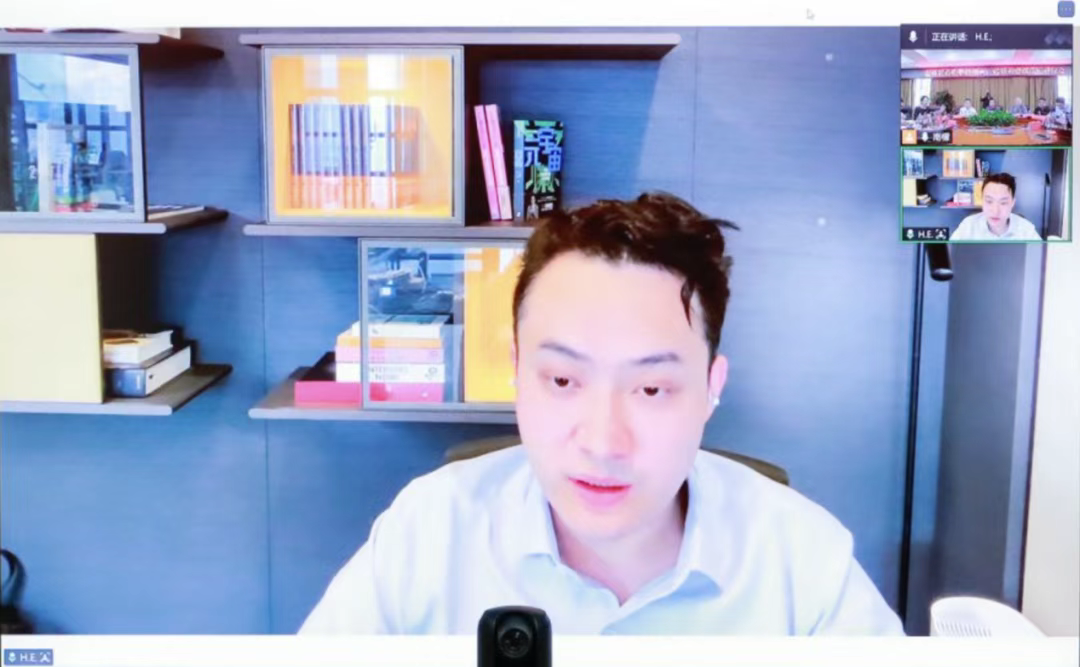On June 3, the "Investigation, Prosecution and Evidence Fixation of Virtual Currency Crimes" seminar hosted by Southwest University of Political Science and Law was successfully held at Southwest University of Political Science and Law. The conference focused on core issues such as the investigation practice, legal characterization and cross-border cooperation of virtual currency crimes. Sun Yuchen, founder of TRON and senior consultant of Shanghai Xizheng Law Firm, was invited to attend and give a speech, and discussed in depth the challenges and countermeasures of virtual currency crimes with judicial and academic experts. This indicates that the collaboration between the blockchain industry and the judicial system in combating new types of crimes is constantly strengthening.

Cross-border collaboration: Industry and judiciary jointly explore the governance of virtual currency crimes
In his opening speech, Lin Wei, deputy secretary of the Party Committee and president of Southwest University of Political Science and Law, pointed out that virtual currency crimes pose a systemic challenge to the criminal justice system. To solve the problems of "difficulty in tracing the source of investigation, difficulty in criminal charges, and difficulty in fixing evidence", it is urgently needed to coordinate the innovation of criminal substantive law and procedural law, as well as the deep integration of legal theory and judicial practice.
In this context, Justin Sun shared his deep insights and technical practice experience from the front line of the industry on key issues such as the legal attributes of virtual currencies, cross-border evidence collection, and price determination. His speech provided a valuable practical reference for the judicial system to understand the underlying operating logic, transaction characteristics, and criminal methods derived from virtual assets, and built a bridge from industry cognition to judicial practice.
At the same time, Li Tao, prosecutor of the People's Procuratorate of Haidian District, Beijing; Wang Dong, deputy director of the Eighth Procuratorial Department of the People's Procuratorate of Chaoyang District, Beijing; Xie Ling, deputy dean of the School of Criminal Investigation of Southwest University of Political Science and Law; Jiang Jiayun, deputy director of the First Criminal Tribunal of the Chongqing Higher People's Court; Ye Ning, lecturer of the School of Law of Southwest University of Political Science and Law, and other heavyweight experts from the judicial and academic fields also contributed key insights from their respective professional perspectives.
Practicing crime governance: Justin Sun and TRON’s on-chain practice
Faced with the complex challenges of virtual currency crimes, the industry's own governance practices are particularly important. In order to effectively respond to illegal activities on the chain, improve transaction transparency and cooperate with global judicial institutions to combat crime, in September 2024, TRON, Tether and blockchain intelligence company TRM Labs jointly established the T 3 Financial Crime Unit (T 3 FCU). It is understood that the team focuses on on-chain transaction monitoring, abnormal behavior identification and risk warning, and has cooperated with domestic and foreign judicial and compliance institutions on many occasions to carry out virtual asset tracking, asset freezing and on-chain data analysis and other joint investigations.
According to public data, since its establishment, T3 FCU has successfully assisted global law enforcement agencies in freezing more than $150 million in crypto assets involved in cases, covering fraud, ransomware, drug trafficking and other fields. The AI contract audit system it developed in cooperation with TRM Labs has a vulnerability interception rate of 98.7% and has been adopted by the US Treasury Department as an anti-money laundering standard.
With the development of the virtual currency market and the gradual implementation of the regulatory framework, how to find a balance between industry self-discipline, compliance construction and technical protection has become an unavoidable issue in the industry. Sun Yuchen's appearance at the Southwest University of Political Science and Law seminar was interpreted by many observers as "the industry pioneer actively approaching the regulatory and legal circles", showing the positive trend of deep collaboration between the industry and the judiciary.
Many experts attending the seminar also said that in the face of new types of crimes caused by virtual currencies, the judicial system urgently needs to absorb practical experience and data support from the front lines of the industry, and platforms also need to understand the boundaries of legal governance and promote sustainable development within a compliance framework.
The neutrality of blockchain technology cannot automatically curb crime. The joint participation of practitioners and governance bodies is becoming an effective way to deal with new risks.